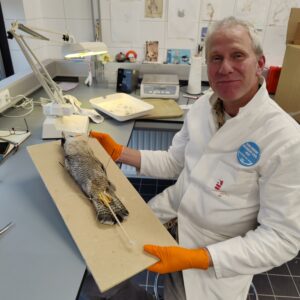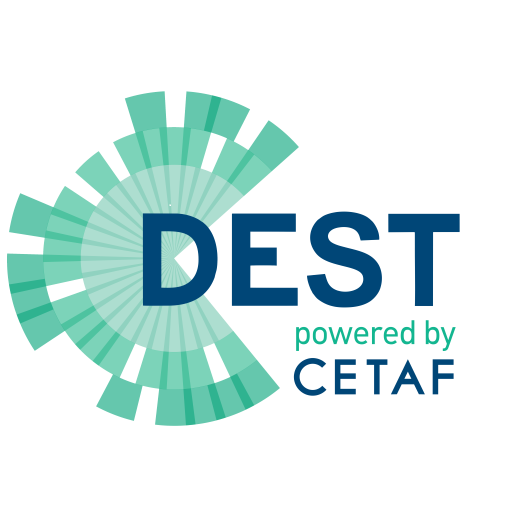Best practices for Vertebrate Specimen Preparation

DESCRIPTION
The goal for this course is to teach best practices for the preparation of museum quality vertebrate specimens and their long term care.
The scientific value of museum specimens is immeasurable. Good quality specimens provide valuable information for many kinds of research. However, improper preparation can render a specimen ineffective for investigation purposes. Currently, it is easy and inexpensive for museums and nature centres to grow vertebrate collections through passive specimen acquisition: roadkills, window kills, and working with wildlife shelters. In this course we will teach the basics of how to start a network for passive collections and how to preserve vertebrate specimens for the long term as high-quality scientific museum specimens. The course is intended for individuals without any experience in preparing specimens for natural history collections, as well as those who intend to work with natural history collections and need to improve their skills.
The preparation methods will include study skins, fluid preserved specimens, skeletal specimens and spread wings. This means that we will take dead animals: birds, mammals, fish, and reptiles (as available) and make them into useful specimens. We will also share the best practices for collecting specimen data. Finally, we will discuss how to house specimens for long term storage and give suggestions on how to manage some of the issues that can arise in collections such as insect infestations. Please note: we will not be teaching how to mount animals in a life like pose for exhibits, only as study skins.
DAILY PROGRAM
The study program is divided in two modules: 1) Online classes and 2) In person workshop, with the following content:
- Online sessions
Day 1: 2 October 20223 Introduction to vertebrate museum collections (theory) and importance of specimens as research vouchers.
Day 2: 3 October 20223 Dry preserved specimens – Birds and Mammals
Day 3: 4 October 20223 Fluid preservation – Fish and reptiles. Appropriate care of prepared materials.
2. In person workshop
Day 1: 9 October 20223 Preparation of fluid-preserved specimen and recording specimen data.
Day 2: 10 October 20223 Step 2 of fluid preservation and preparation of a mammal study skin
Day 3: 11 October 20223 Step 3 of fluid preservation and preparation of bird study skin. Preparation of a skeletal specimen.
COURSE DURATION
Online sessions of 1 hour each and in person in Leiden 3 full days. The online sessions will discuss how museum collections are built and maintained, and the 3 days in Leiden will be a hands on training in how to prepare a vertebrate study
DATES OF TRAINING PERIOD(S)
Online classes October 2-5 2023, in person lab work October 9-11, 2023
COURSE LOCATION
Naturalis Biodiversity Center, Leiden, Nederland
COURSE LANGUAGE
English
TARGET AUDIENCES
Museum employees who want to increase skills, employees of schools or institutions who want to create or learn to maintain a teaching collection, nature center or parks staff interested in creating a collection for exhibits or public programs and everyone who is interested to prepare vertebrate specimens.
MODE OF TRAINEES’ ASSESMENT
Each participant will be given specimens to prepare. Assessment of preparation and data based on daily practical work.
PARTICIPANT QUOTA (min and max number of trainees)
Min 4 – Max 8 trainees
FEE
400€ – Includes coffee and lunches
PAYMENT OF FEES
Registration is free.
Only the trainees who will be selected to participate the course will be requested to pay the fees. This will happen after the registration deadline.
REGISTRATION DEADLINE
Registration has closed on 20 June 2023
TYPES OF TRAINING
Theoretical modules: Online lectures during 3 days time TBD
Lab work: 3 days lab work face to face
TRAINING COURSE LEARNING OUTCOMES
- Preparation of 1 bird and mammal as study skins
- Learning how to correctly record specimen data as well as what kind of data is most useful
- How to care for specimens in both short and long term
- The students will be ready to take on a roll as a preparator and collection manager of vertebrate collections
CERTIFICATION PROVIDED
- Certificate of Attendance by CETAF DEST with ECVET Units (European Credit system for Vocational Education and Training)
- Certificate by CETAF DEST according to Europass Certificate Supplement (certifying analytically the knowledge, skills and competences gained)
WHAT TRAINEES NEED TO BRING
- Course fee will cover cost of dissection kits for all participants to keep
- Students will receive a manual with space for personal note taking.
More details: dest@cetaf.org
Registration
Registration has closed on 20 June 2023
